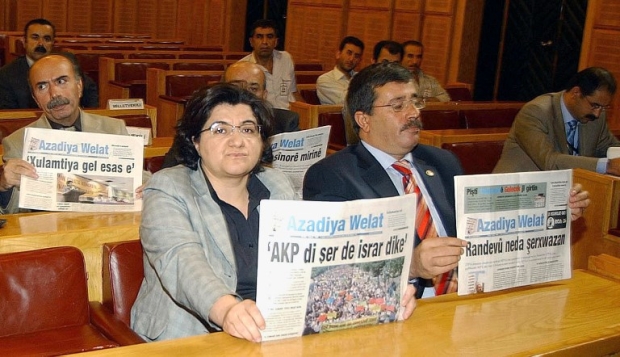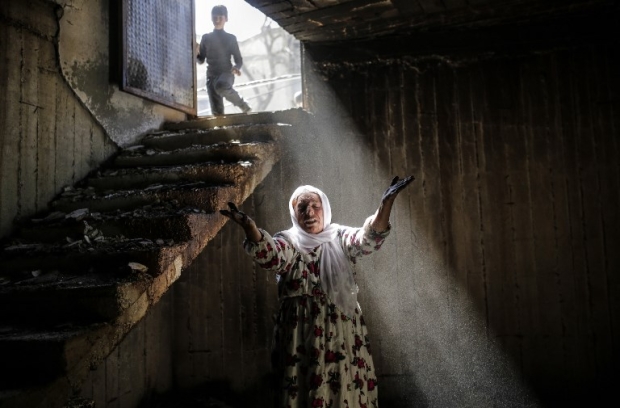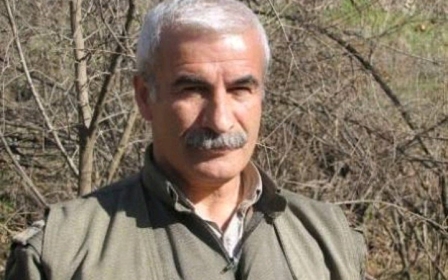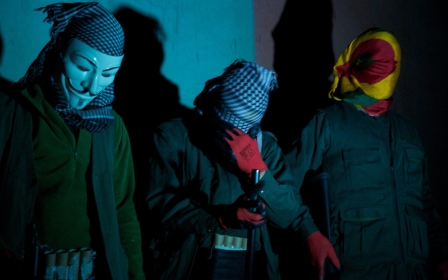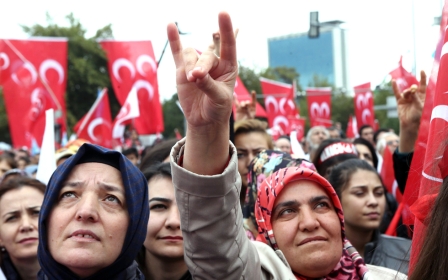Turkey: No country for Kurdish newspapers
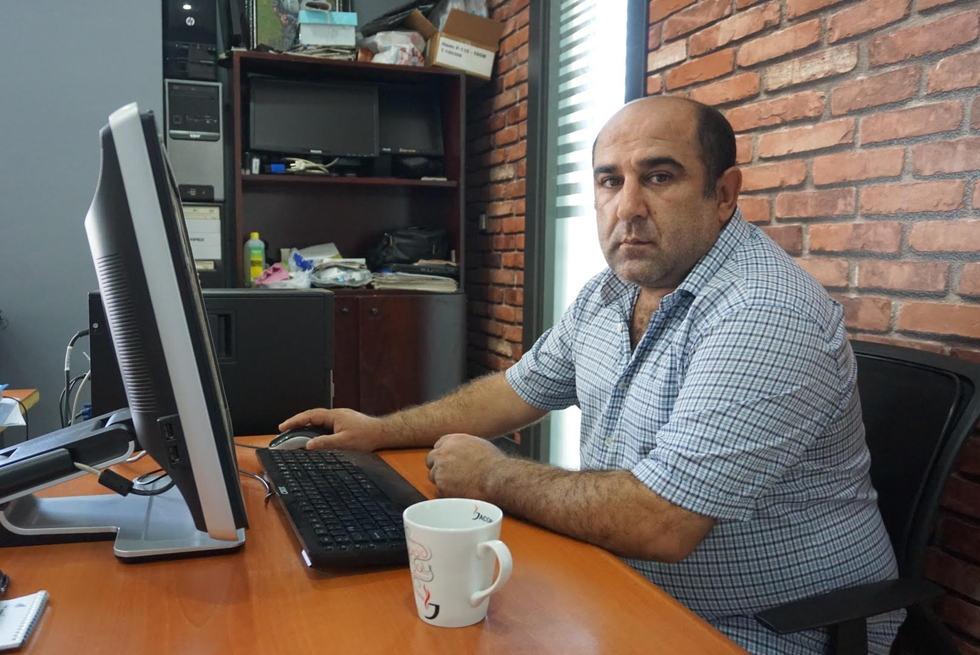
DIYARBAKIR, Turkey – The newspaper formerly known as Welat may hold a record for the number of names under which it has published. Welat, Hawar, Welatê Me, Dengê, and Azadiya Welat are just a few of the titles the paper has held since its founding more than 25 years ago.
As the only nationally distributed newspaper in Turkey to be printed in the Kurdish language, the paper was subject to many bans, but its staff always found a way to evade the censors and refound the paper under a new name. Until now.
On 8 July, Welat was shut down by a government decree passed under Turkey’s state of emergency. This time, it has not been able to return to print.
Welat had already been banned twice in the last two years under the names Azadiya Welat in 2016 and Rojeva Medya in 2017. Last year, the paper returned to using its original name, Welat.
“That turned out to be both the first and the last name of our newspaper,” said Cetin Altun, the paper’s editor.
After the failed military coup in Turkey in July 2016, media outlets across the country have come under harsh pressure from the state. But for Kurdish media, this was nothing new. Even speaking Kurdish was banned in Turkey until 1991.
For the first ten years of its existence, Welat was published in Istanbul because of the extent of political repression in the Kurdish heartland in southeastern Turkey. In 2003, the paper moved its headquarters to Diyarbakir and expanded its coverage, becoming a daily in 2006.
Journalists killed
Since the three-decades-old war between the Turkish army and the Kurdistan Workers' Party (PKK) in the predominantly Kurdish southeast restarted in 2015, media outlets have faced increased pressure. “Many of our journalists have been killed, detained, arrested, and there were hundreds of legal cases opened against them,” Cetin told Middle East Eye.
The war between Turkish security forces and local militants linked to the banned PKK, in which more than 4,000 have been killed in three years, provided the worst possible environment for the Kurdish language press as fighting spilled into the major cities of the southeast.
Whatever the state may say, they dislike us because we have resisted the assimilation of Kurdish language and culture attempted by the Turkish state
- Cetin Altun, editor of Welat
In February 2016, one of Welat’s reporters, a journalist named Rohat Aktas, was killed in a mass killing known as the Cizre basement massacre, according to individuals who were in the basement before the attack occurred. Turkish security forces, who were battling armed Kurdish fighters, stormed three basements in the city of Cizre, killing more than 150 people.
Welat’s editorial line is supportive of the opposition, pro-Kurdish People's Democratic Party (HDP). It is also more accommodating of the PKK’s view of the conflict than any Turkish media outlet, which has earned it the censure of the authorities. The paper's editors claim they represent widely held views in the predominantly Kurdish southeast.
The Turkish government claims Welat published “propaganda for terrorist organisations”. In an ongoing court case against 24 journalists from the paper, prosecutors have demanded 300 years in prison in total on terrorism propaganda charges.
Altun, however, maintains that his staff were journalists, whatever their political opinions might be.
“Whatever the state may say, they dislike us because we have resisted the assimilation of Kurdish language and culture attempted by the Turkish state,” Altun said.
Raids and bans
On Welat’s final day in print last month, police raided and detained a group of journalists from Ozgurlukcü Demokrasi, a pro-Kurdish newspaper published in Turkish.
Welat’s team had finished their last edition of the paper, which included a report on the arrests, and sent the copies to their printers in Istanbul. But the paper would never make it to print; police officers were waiting at the printers and blocked the paper from being published.
Altun approached printers across the country seeking a publishing partner, but to no avail. The paper’s staff considered buying their own printer and publishing despite the ban, but decided against the move on the grounds that the printing equipment would surely be seized.
As a statement of defiance, for two days they published the paper using a photocopier and sent the copies to majority Kurdish cities. These were the last printed editions of the paper.
Welat’s staff have not given up altogether. After the ban, they have moved their work online by setting up a news website under the name E-Rojname (E-Newspaper). “We couldn’t stop entirely,” Altun said. “It’s a responsibility to their memory of our colleagues to pick up their pens, and to use them.”
The website was quickly banned and readers in Turkey must use a VPN to access it.
Print culture
Welat may have been the only newspaper published nationally in Kurdish, but it is not the only casualty among the Kurdish press in Turkey.
In March 2011, Rosan Lezgin founded Newepel, an independent monthly newspaper published in the lesser-spoken Zazaki dialect of Kurdish. On 15 June last year, having published 100 issues, it too went out of print.
Hundreds of copies of the paper were confiscated by local government officials. The state postal service PTT would mysteriously lose large Newepel deliveries. It was absurd
- Rosan Lezgin, founder of Newepal
Lezgin, an autodidact Zazaki-speaking Kurdish columnist and novelist, founded Newepel as an eight-page literary newspaper that would both celebrate and preserve Zazaki language and culture. In addition to essays and local news, the paper published poetry, folkloric literary works, and even nursery rhymes.
“It’s very important to support these things, because we are losing our language, and the job of preserving it hasn’t been done. The older generation who have the knowledge are dying out,” he told MEE.
Newepel’s style was unusual for a newspaper. Its writing was designed to be close to the spoken language of the countryside, but in written form. The paper nonetheless had an intellectual community around it, with dozens of academics and authors contributing to it.
But as with all Kurdish language publishing in Turkey, keeping the paper going wasn’t easy. According to Lezgin, both the state itself and elements within Zazaki-speaking society who were unhappy with the paper’s apparent lack of a clear political stance put pressure on him.
“Hundreds of copies of the paper were confiscated by local government officials. The state postal service PTT would mysteriously lose large Newepel deliveries – it was absurd,” he said.
Having decided to end the paper’s run at 100 issues, Lezgin has also taken Newepel online, to Zazaki.net, a website he maintains in the spirit of his newspaper.
'We feel hopeless'
It isn’t only Kurdish newspapers that have faced closures. A string of Kurdish language television channels have also been closed by government decree in September 2016, two months after the attempted coup.
But in Diyarbakir, journalist Ferhat Mehmetoglu has recently set up a new television and radio station that broadcasts in Kurdish. With a staff of just three people, his channel, Amed TV, which is named after a common Kurdish name for Diyarbakir, is still going.
Mehmetoglu started his channel in 2010 but was forced out by the owners over the apparent lack of advertisements he aired for the ruling Justice and Development Party (AKP), he explained. Having fought and won a seven-year legal battle over the rights to the name Amed TV, he has now refounded the channel as an independent broadcaster.
“Kurdish media is not in a good state at the moment; the overall quality is not good,” Mehmetoglu told MEE. “So our goal is to run a local Kurdish language channel of high quality.”
Amed TV lacks the resources to cover all the breaking news. Instead, the channel reports on cultural and artistic items.
However, the bans and closures of Kurdish newspapers are a sign of dark times for Kurdish readers, according to Mehmetoglu. “After Welat was banned, we feel hopeless for the future of Kurdish media.”
MEE asked the Turkish government for comment, but had not heard back by the time of publication.
New MEE newsletter: Jerusalem Dispatch
Sign up to get the latest insights and analysis on Israel-Palestine, alongside Turkey Unpacked and other MEE newsletters
Middle East Eye delivers independent and unrivalled coverage and analysis of the Middle East, North Africa and beyond. To learn more about republishing this content and the associated fees, please fill out this form. More about MEE can be found here.


